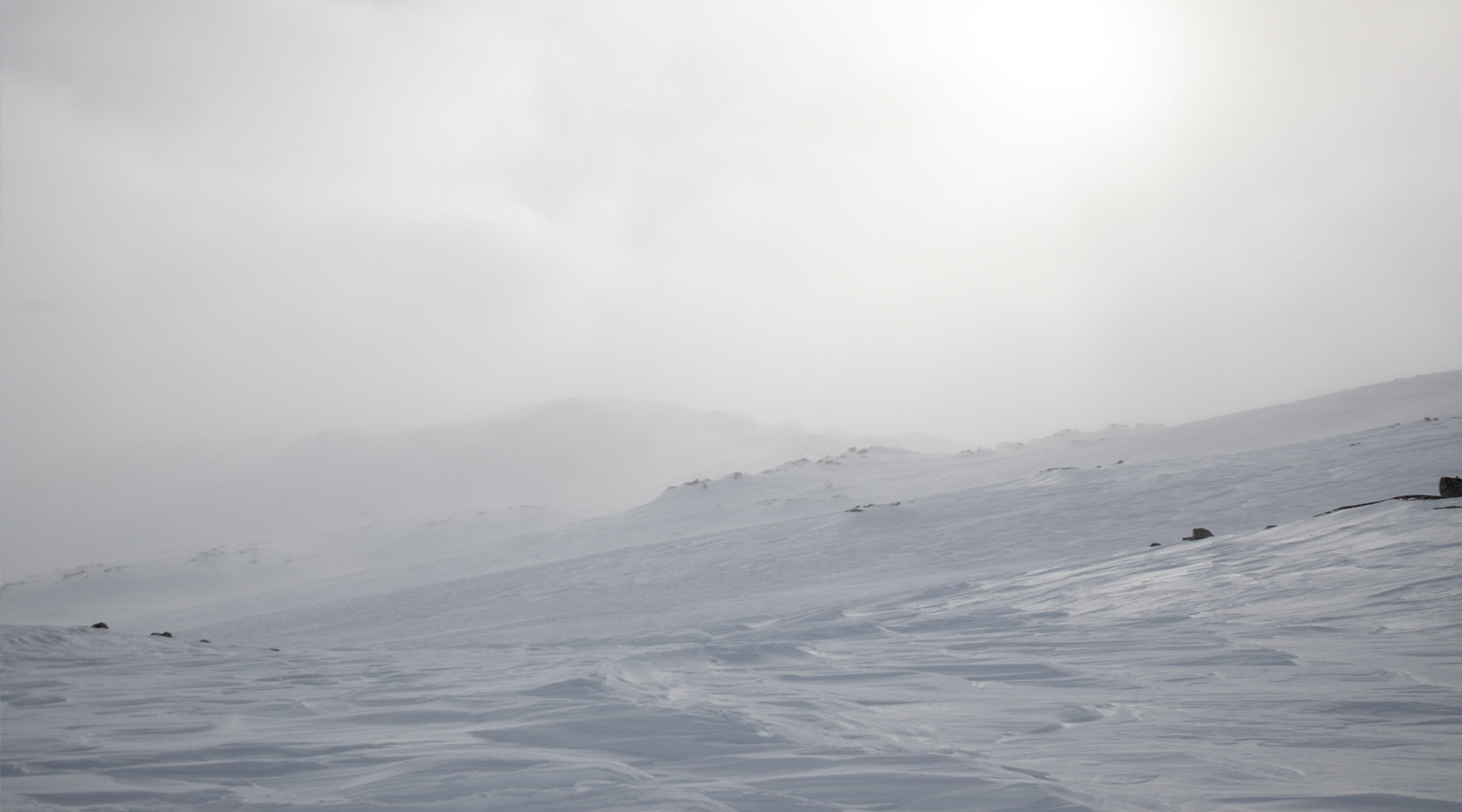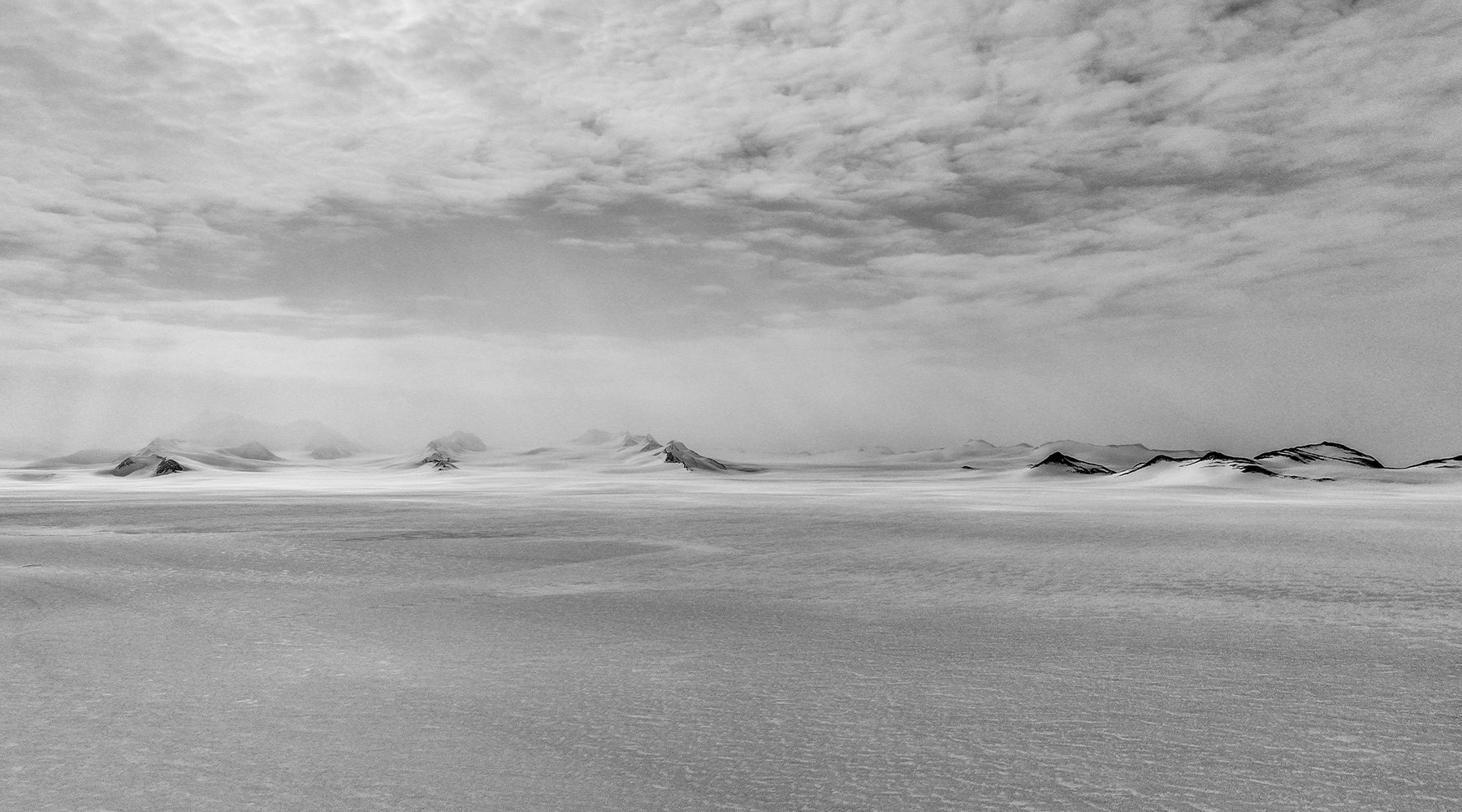
John Geiger: The Third Man Factor And The Shackleton Medal
John Geiger is Chief Executive of the Royal Canadian Geographical Society (RCGS) and the internationally bestselling author of seven books, including The Third Man Factor. As he joins the judging panel for the Shackleton Medal for the Protection of the Polar Regions, he talks to Rachel Halliburton about how Shackleton’s story has inspired him.
When John Geiger was seven years old, he had an experience that would mark him for the rest of his life. His father, KW Geiger – a geologist, had taken him on a field trip to southwestern Alberta, and they were walking close to the Oldman River. It was a hot summer’s day, and as they climbed a steep embankment, John came face to face with a rattlesnake. Since his father had reached the top of the embankment already, the seven-year-old was on his own, confronted with an animal that was clearly poised to strike.
In his remarkable book The Third Man Factor, John writes, ‘I am unsure today exactly what happened next, and how much of my memory is real, and how much is a child’s overactive imagination. But I do remember it all very clearly. There was a moment of sheer terror. Then suddenly there was a physiological shift of perspective. I felt detached from my immediate situation, and surveyed the scene from another, impossible, angle. I was two people in two places at one time. I saw my father and I saw a child, a child who could only have been me.’

When we meet in London after he's flown in from Canada to see the unveiling of the Shackleton memorial at Westminster Abbey, Geiger tells me, ‘My father grabbed me and literally threw me over his shoulder. What’s odd is that I was like a witness.’ Once the moment of crisis had passed, Geiger’s perspective returned to normal, and the field trip continued without incident. Yet many years later, when he was reading Ernest Shackleton’s account of the Endurance expedition, South, he realised he felt a connection with Shackleton’s description of the ‘invisible presence’ that had joined him and his men on their rescue mission across South Georgia.
‘Who is the third who always walks beside you?’ – TS Eliot
It was a journey that famously should have been impossible. Following their perilous 17-day voyage from Elephant Island in the James Caird, Shackleton, Tom Crean and Frank Worsley went on a thirty-six hour march across mountains and glaciers with no equipment beyond fifteen metres of rope and a carpenter’s adze. It wasn’t till three weeks afterwards that Worsley became the first of the men to confide that he had felt there was another person with them during their ordeal. Shackleton initially didn’t want to mention it in South, but when he did it had such an impact on the public imagination that TS Eliot would immortalise this concept of an unseen presence in his poem The Wasteland.
Mathematical pedants will note that in Shackleton’s case it was a fourth man, but for Eliot – who was at one level talking about his failed marriage – the extra presence was described as a ‘third’. Spurred on to research the phenomenon, Geiger quickly realised that there was an abundance of examples of people who in extreme environments – either their own or with others – had felt a similar kind of unseen guidance.
Who does the presence represent?
'I think a lot of how you interpret it depends on your own view of the world,' Geiger tells me. 'If you were a Christian, you would say it was Christ, or an angel, or some other manifestation of God. But for others it’s a recognisable person, either a historic figure or someone in their life who’s recently died.’
In his book – one of seven that he has written – Geiger cites the example of the esteemed polar explorer and climate advocate Robert Swan. Swan was struggling with the sled he was pulling on his 70-day march to the South Pole in 1985 and thought he would not be able to complete the mission. He was officially with two men on the expedition – which had been conceived as a tribute to Captain Robert Falcon Scott. But frequently he sensed there was a third man ahead of him.
When he stopped and sat down on his sled he felt that the third man was sitting next to him. In that moment he believed the man to be Captain Scott. What was strange was that the presence was laughing, and Swan laughed too till tears came from his eyes. His expedition partners were concerned about his condition, and one of them told him to ski on ahead while he pulled the sled. Just a few steps in, this partner realised that the runners had been mounted incompetently, making it much more difficult to pull. Once they’d been properly remounted, they resumed the expedition, and from that moment on Swan felt once more that it was possible to reach his destination.
The bicameral brain
Geiger refuses to offer just one explanation for the phenomenon of the third man, but instead explores a fascinating range of options including the pathology of boredom, dehydration, low blood sugar glucose, and the response of the brain to magnetic activity. He also looks at a controversial theory put forward by the late psychologist Julian Jaynes about the bicameral brain, which argued that thousands of years ago, the right-brain was like the ‘god’ side, dispensing orders to a left-brain ‘human’ side. As proof of this Jaynes took the epic poetry of Homer, where heroes like Achilles and Hector experience important decisions as external events, in which they are warned or encouraged by the gods. He went on to argue that extreme stress could still bring out this division in the brain, leading people to believe they were being helped by a guiding presence.
The enduring fascination of Shackleton’s story
I ask Geiger about what other elements of Shackleton’s story have inspired him. Certainly there’s a strong Canadian connection – commenting recently in his capacity as Chief Executive of the RCGS, Geiger revealed that Shackleton felt such a strong link with Canada he was planning to move there and had even bought land. In an article for an American newspaper, Shackleton wrote, “I freely confess that the microbe of Canadian endeavour and Canadian opportunity has entered my blood and it may be my fortune before long to join the ranks of those who cast their lot in our greater land.” Beyond this he counted the Scottish Canadian poet Robert Service among his favourite writers.
But there are broader reasons for the connection too. ‘Shackleton had that quality of leadership that enabled him to deal with a crisis in a way that no-one can compare to,’ Geiger says. ‘Crises often arise in extreme environments and his achievement in overcoming what happened on the Endurance expedition was monumental. He was also a self-made explorer – he didn’t come up through the ranks of the Royal Navy, so in many ways he was an entrepreneur. That’s something that resonates with me.’
The Third Man Factor: Surviving The Impossible was published back in 2009 and received such an overwhelming response from people who’d had similar experiences, that Geiger went on to publish a second book The Angel Effect: The Powerful Force that Ensures We Are Never Alone. It’s an indication of his immense range that more recently, through the RCGS, he has co-ordinated the production of the first Indigenous Peoples Atlas of Canada.
Rate of change in the Arctic
Like everyone else on the judging panel for the Shackleton Medal, he’s in no doubt about the urgency of raising awareness of what’s happening in the Arctic and Antarctic. ‘When I first went to Greenland,’ he says, ‘I saw the glaciers literally calving in front of me into the sea. Then I went back eight, ten years later and those glaciers were gone. This having a dramatic impact on many many aspects of life. People need to go beyond personalising it, beyond asking “how is this affecting me”. In the Arctic the rate of change is horrifying. It’s important to act, not least because we have no conception of exactly what the knock-on effects are going to be.’
The Third Man Factor by John Gieger is available to purchase here.
The Shackleton Medal for the Protection of the Polar Regions
The Shackleton Medal is an annual £10,000 prize, awarded to the person judged to have done the most to protect the polar extremes so valued by The Boss. For 2024 John Geiger joins the esteemed judging panel. If you know someone striving to the utmost to protect the polar regions you can nominate them for the Shackleton Medal here. Nominations are open until 5th April 2024.



